Generating positive outcomes by Year 5 to 8 priority learners in writing: An inquiry into effective teacher practice
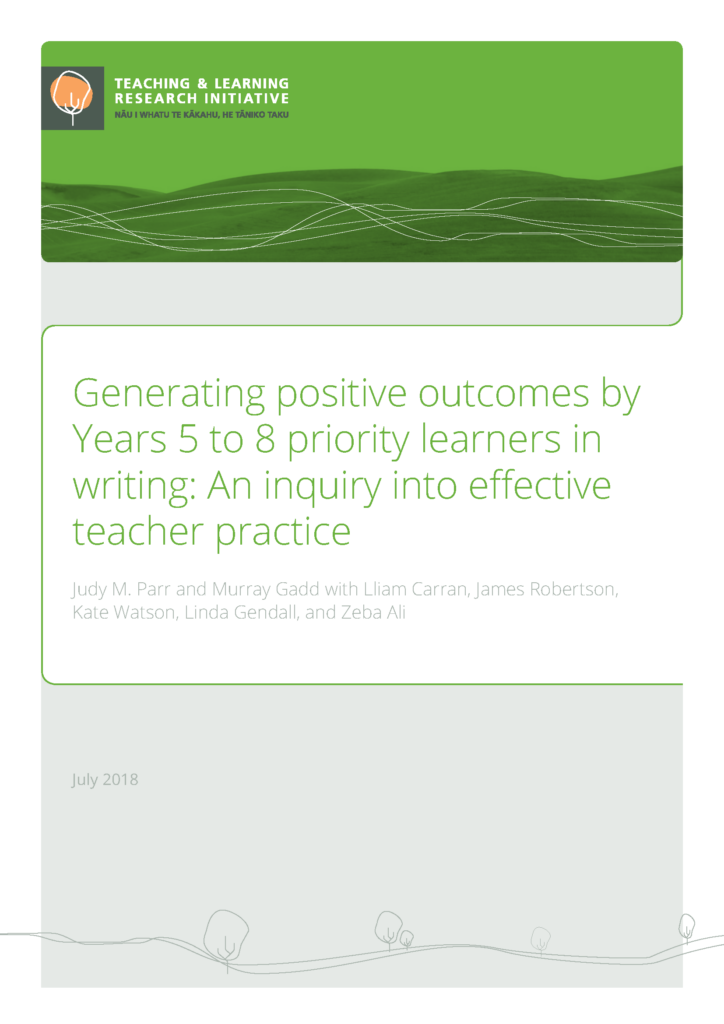
1. Writing: The issue to be addressed Writing is a demanding, multidimensional process that is, cognitively and socially, highly complex. Success in writing is vital to success in education and in the workforce (Graham, Capizzi, Harris, Hebert, & Morphy, 2014). Writing is increasingly used to demonstrate learning through schooling and has the potential to contribute […]
Supporting Teaching and Learning in Home-Based Early Childhood Education
E tipu e rea mo ngā rā o tō ao. Grow up, o tender shoot, and thrive in the days destined for you. Introduction Children’s early years set the stage for their future development, in education and beyond (Poulton, Gluckman, Potter, McNaughton, & Lambie, 2018). In New Zealand, and internationally, many young children spend time […]
Teaching for equity: How do we do it?
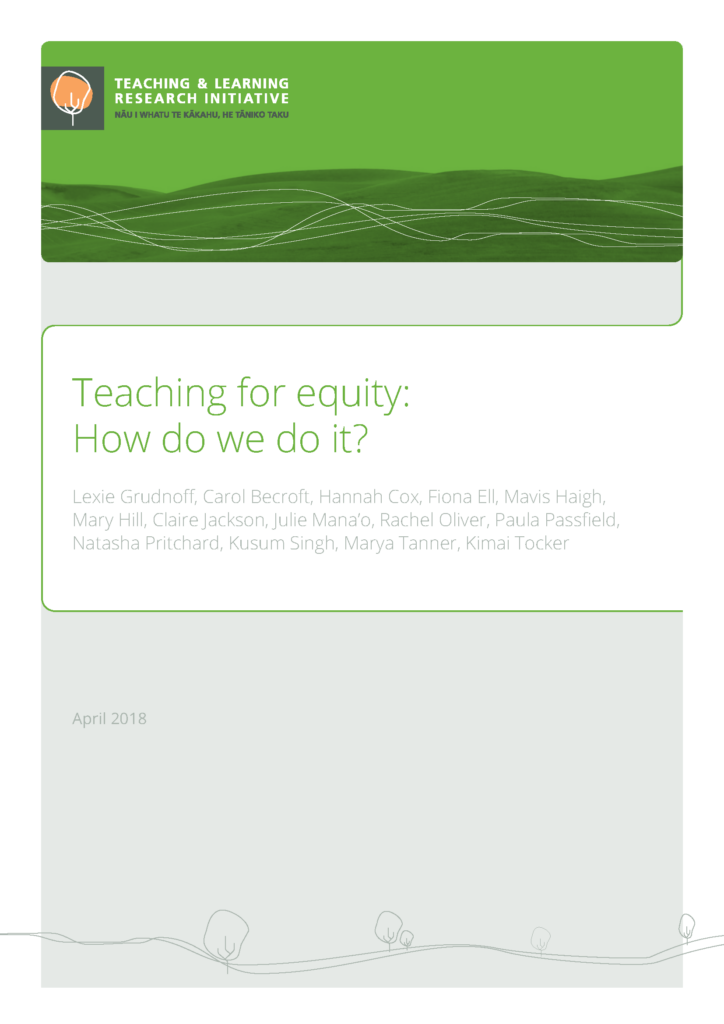
Introduction Researchers, teachers, and policy makers around the world are grappling with the challenge of ensuring that increasingly culturally and linguistically diverse student populations are provided with equitable learning opportunities and outcomes (UNESCO, 2014). This challenge takes on particular significance in New Zealand where national and international achievement data persistently show a large gap between […]
Enhancing the intercultural capability of students of additional languages in New Zealand’s intermediate schools
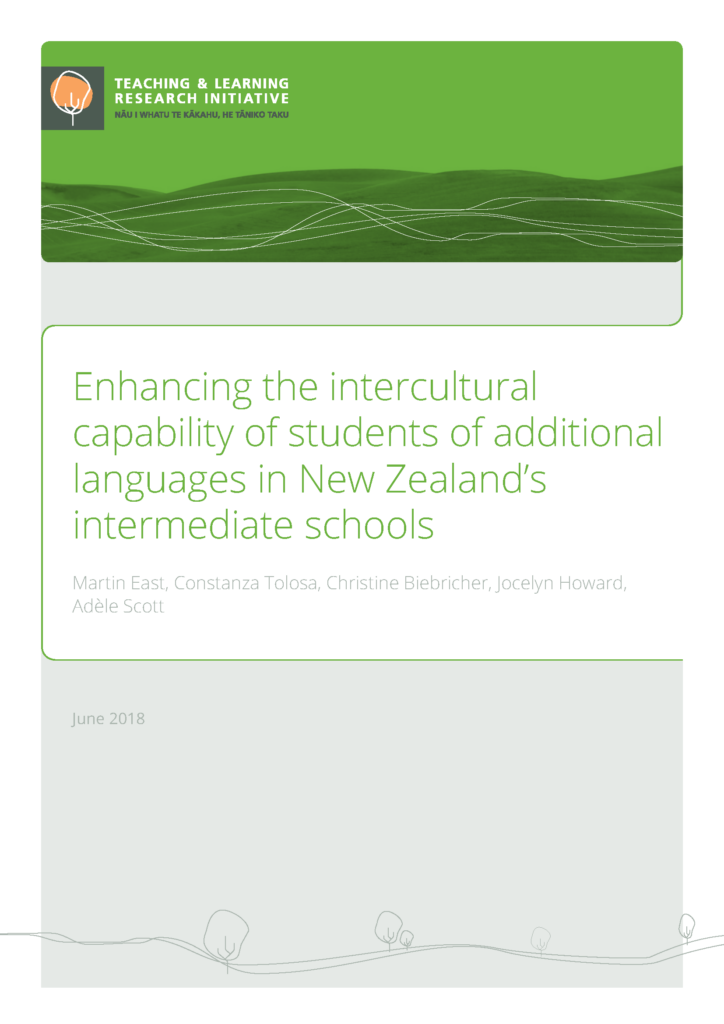
Introduction The purpose of this TLRI-funded study was to investigate how five Year 7/8 teachers of additional languages in four primary/intermediate schools in New Zealand supported their students to develop their intercultural capability in the context of learning a language additional to the language of instruction. The teachers taught a range of languages (Chinese, Japanese, […]
An architecture of ownership
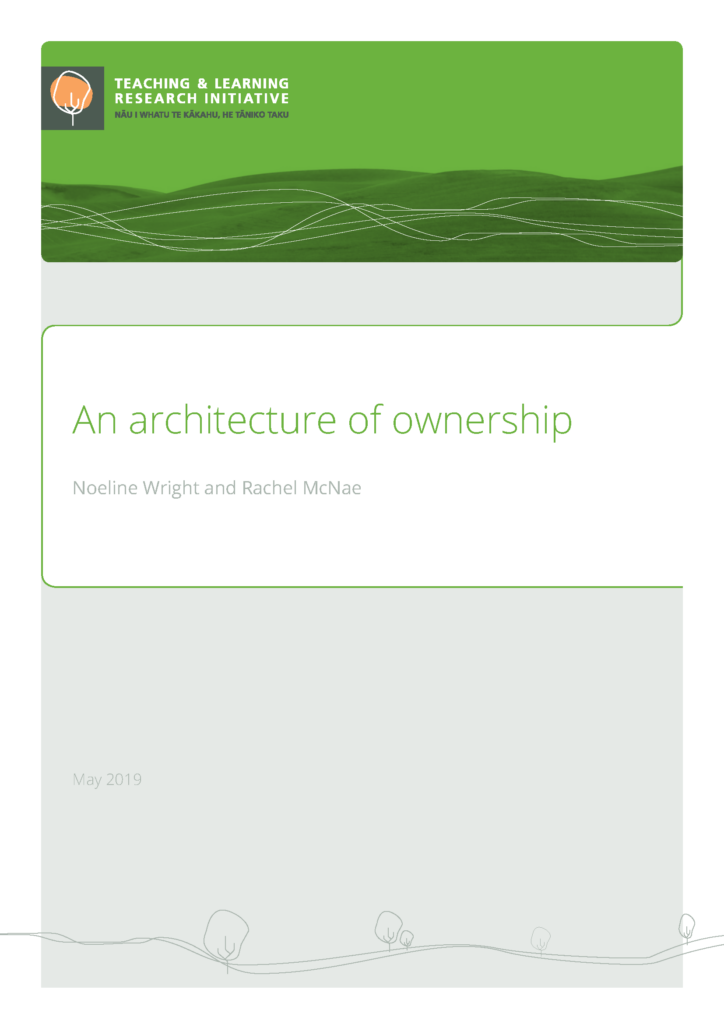
Introduction This project set out to explore how completely new schools, occupying completely new classroom spaces, create themselves as schools. At its inception, a new school has only its buildings; everything else must be developed. In particular, the school must develop its vision for learners, and how this is reflected through school culture, routines, values, […]
Citizen scientists in the classroom: Investigating the role of online citizen science in primary school science education
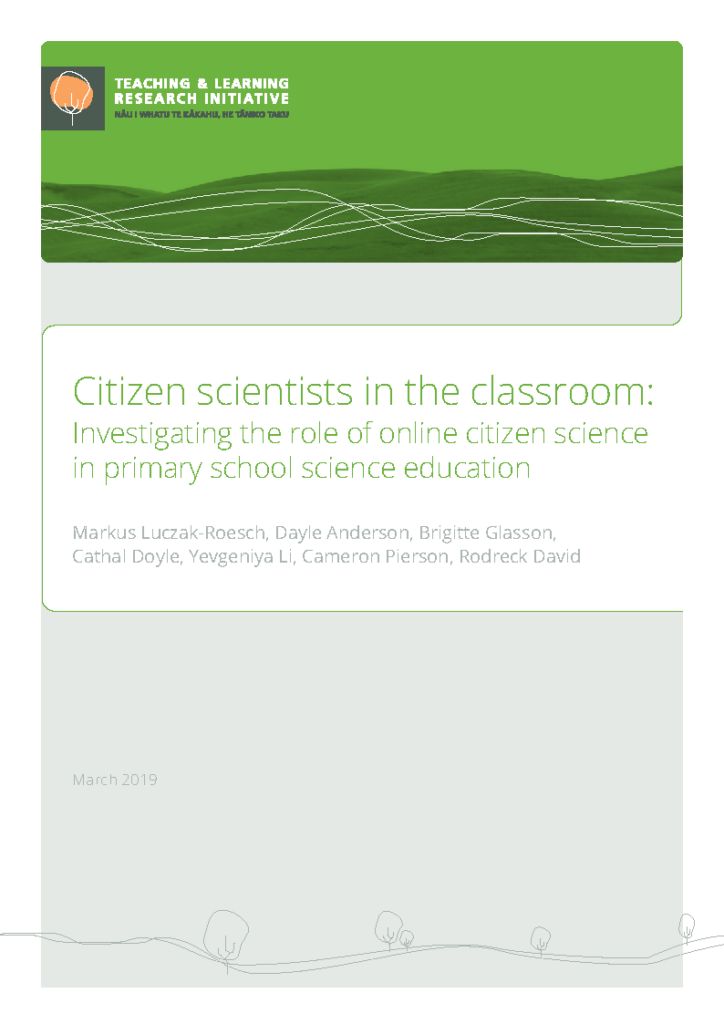
1. Introduction This project aimed to assess the impact of online citizen science (OCS) participation on the science education of primary school children in New Zealand. Four exploratory cases were used to examine the nature and impact of embedding OCS projects that use web-based online tools within primary classroom environments. Findings provide key insights into […]
Contributing to change? Responding to future-focused issues through education outside the classroom
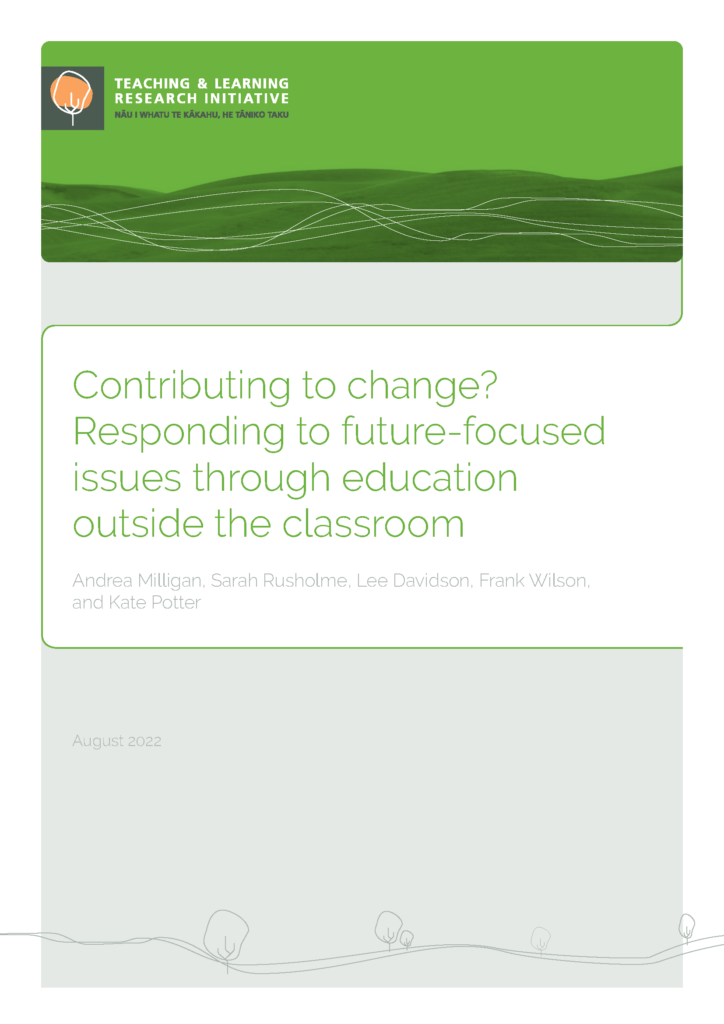
Introduction How can educational experiences in public spaces such as museums, libraries, and eco-sanctuaries support learners to address pressing social, cultural, and ecological issues? Working with four primary teachers and two secondary teachers, their ākonga (Years 3–10), and educators from 10 providers of learning experiences outside the classroom in the Wellington region, this project investigated […]
Co-constructing a culturally and linguistically sustaining, Te Tiriti-based Ako framework for socio-emotional wellbeing in education: A collaborative project among teachers, whānau, hapū and iwi to enable a holistic approach to education
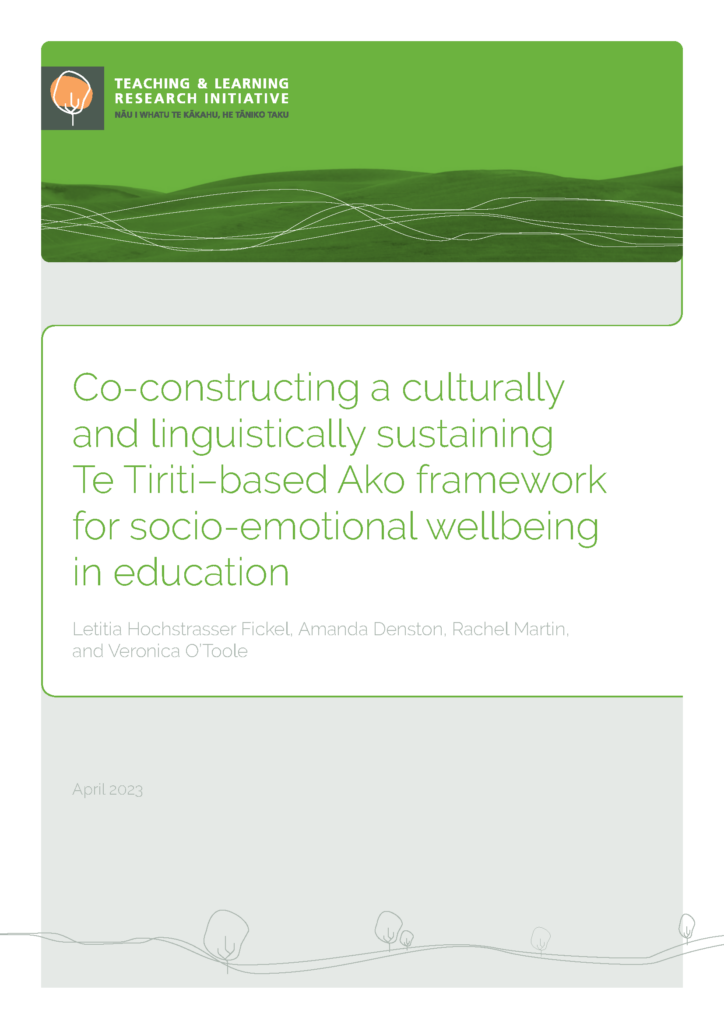
Introduction Schools have a role to play in improving youth social emotional wellbeing (SEW) by supporting their development of social-emotional knowledge, skills, and capacities through social emotional learning (SEL). However, schools in Aotearoa New Zealand vary widely when responding to and promoting tamariki wellbeing (Education Review Office, 2015a, 2015b). More successful schools show a comprehensive […]
Strengthening belonging and identity of refugee and immigrant children through early childhood education
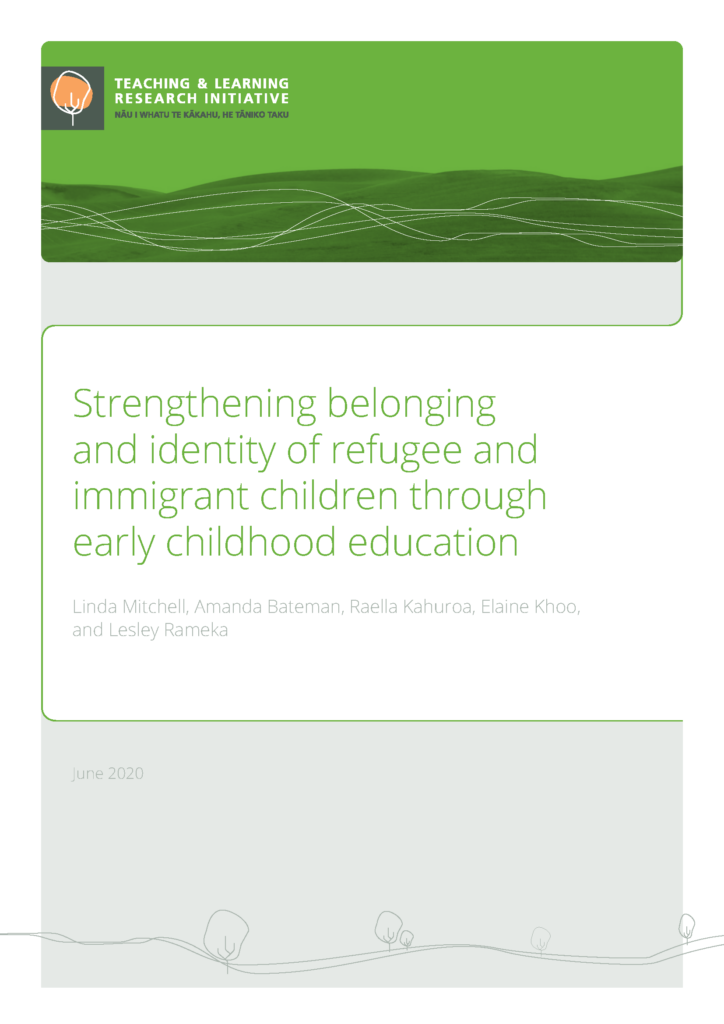
Introduction This project explored the role of early childhood education (ECE) and pedagogical strategies in supporting a sense of belonging and identity for refugee and immigrant children and families in Aotearoa New Zealand. We used a design-based research methodology in four culturally diverse ECE settings to develop and trial theories and strategies about how ECE […]
Māku anō e hanga, i toku nei whare – I will build my own house
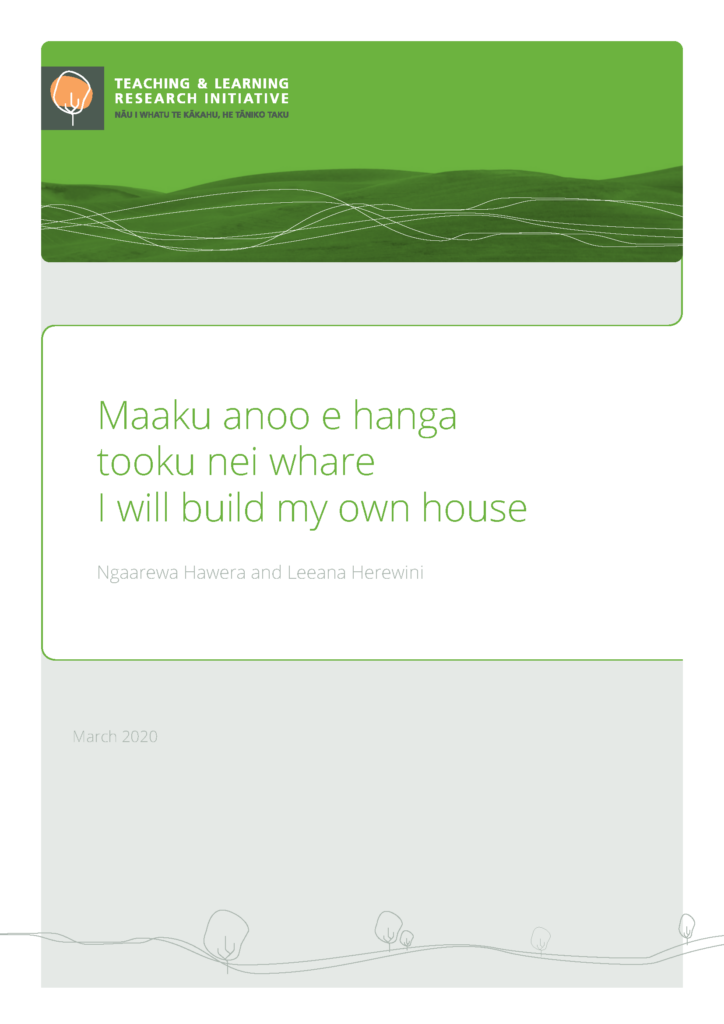
INTRODUCTION: The context of the project The proponents of Modern Learning Environments (MLE) or Innovative Learning Environments (ILE) are from largely non-indigenous backgrounds. In Aotearoa New Zealand, research about learning mathematics in an MLE is limited and focuses almost exclusively on English-Medium (EM) settings (Bisset, 2014; Murphy, 2016; Osborne, 2013). In contrast, this research sought […]
Zooming out and zooming in on student data: Developing teacher data literacy to enhance teaching and learning
Introduction While teachers and schools have access to an increasing range of data, a challenge is using these data to support student learning outcomes. Over the past decade, expectations for teacher use of data as a basis for instructional decision making have increased (Pierce & Chick, 2011; Schildkamp & Poortman, 2015). Teacher assessment literacy, data-based/data-informed […]
Pathways to the Past: Effective Pedagogies for Māori and Pasifika Students in the Historical Disciplines
Summary Current research into, and definitions of, historical literacy do not adequately acknowledge the cultural backgrounds of indigenous learners across the historical disciplines and levels. Nor do they recognise the vital role of historical literacy in empowering indigenous students. In talanoa (conversations) with Māori and Pasifika students and teachers of a range of ethnicities from […]
The Relationship Between English Language and Mathematics Learning for Non-native Speakers
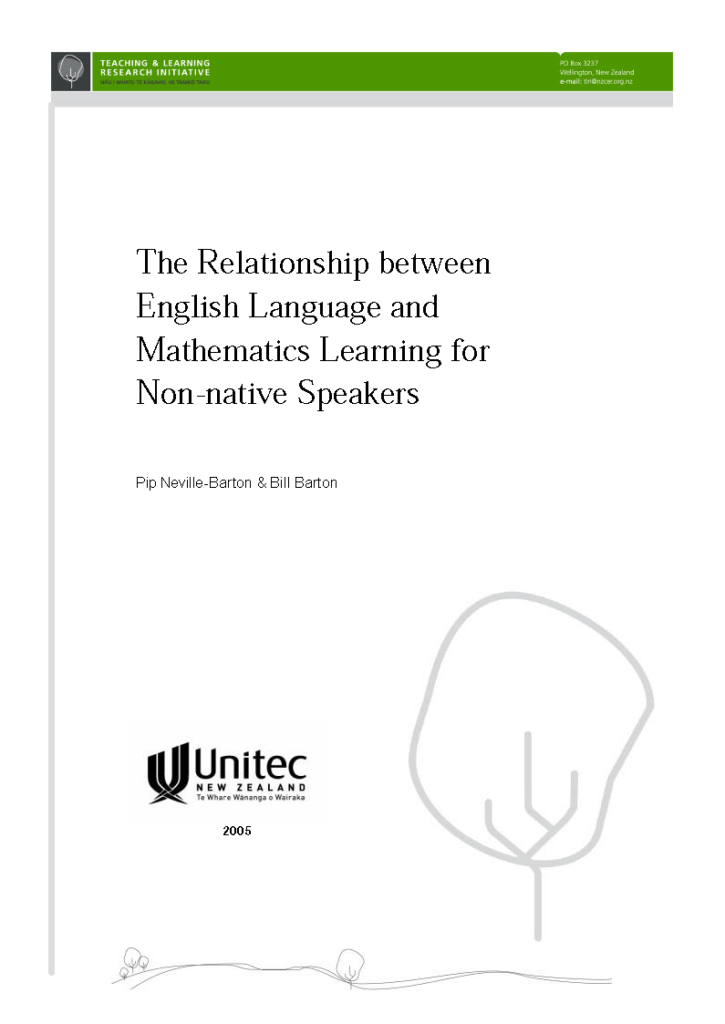
1. Introduction In recent years, New Zealand secondary schools and tertiary institutions have enrolled increasing numbers of students for whom English is an additional language (EAL students). There is, therefore, growing interest in the language requirements for successful study and in programmes that will assist these students. It is a common perception that students from […]
Narratives of beginning Māori teachers: The forces that shape the first year of teaching
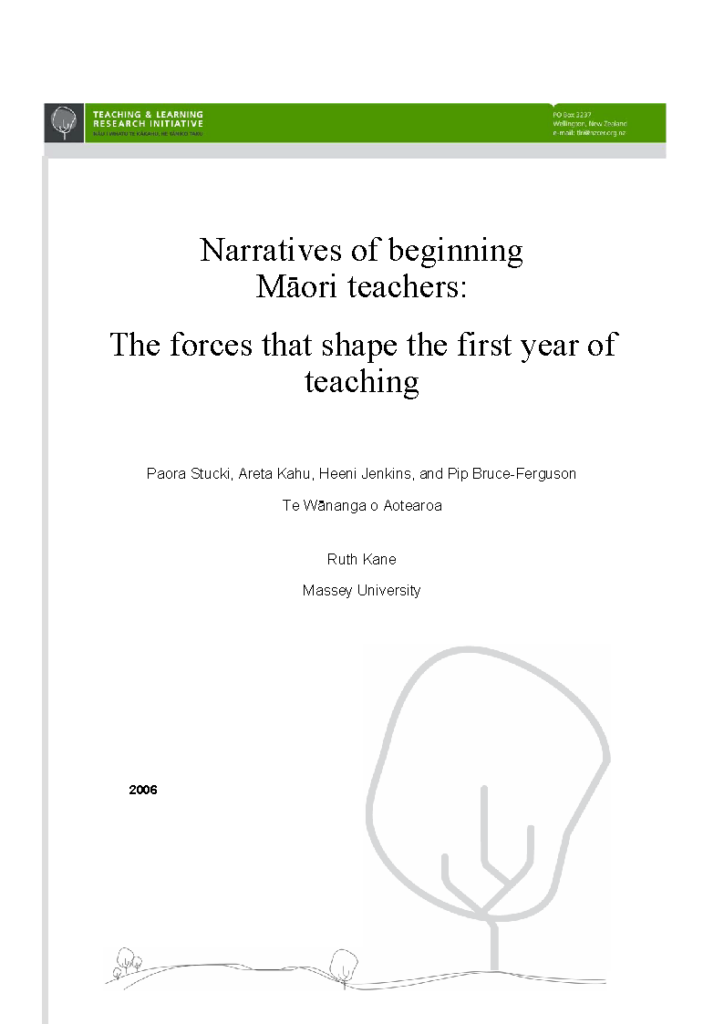
He Mihi Koia tënei ko te mihi i te tuatahi ki te hunga nä rätou i para te huarahi e whai nei mätou, arä, ko te tini kua ngaro atu i te tirohanga kanohi. Ko te tumanako rä, e tika ana tä mätou whai i te huarahi i whakamomori rä koutou ki te hanga hei […]
Numeracy Practices and Change
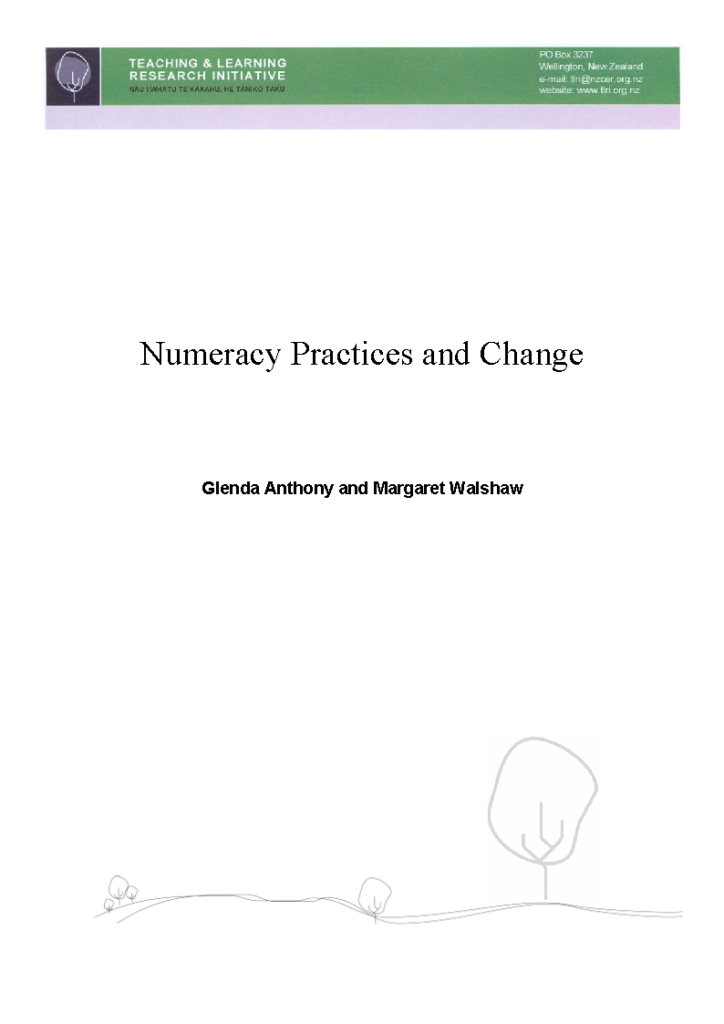
1. Aims, objectives, and research questions Overview of project Late in 2003 the Teaching and Learning Research Initiative granted funding to Massey University’s Department of Technology, Science, and Mathematics for a two-year study of numeracy practices in New Zealand schools. Central issues to be addressed were those of equity, proficiency, and sustainable practice in relation […]
Age-responsive pedagogies: ‘Preschool’ ECE teachers interrogate their dialogues with and about two-year-olds
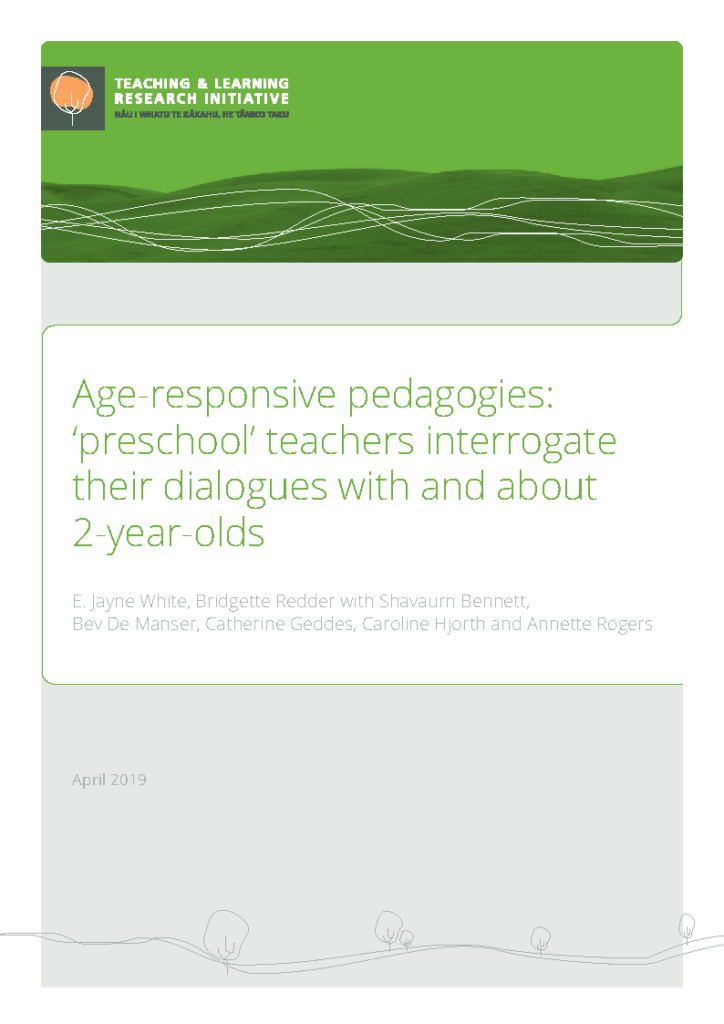
Our study highlights how careful attention to, reflection on, and critical engagement with the dialogues of 2-year-olds in preschool ‘mixed-age’ settings can help teachers work more effectively with these learners. The teachers in our study carried out in-depth coding of, and reflection on, comprehensive video footage of dialogues involving 2-year-olds in two preschool settings over […]
Mathematical relationships and practices: A view into Year 9 mathematics classrooms.
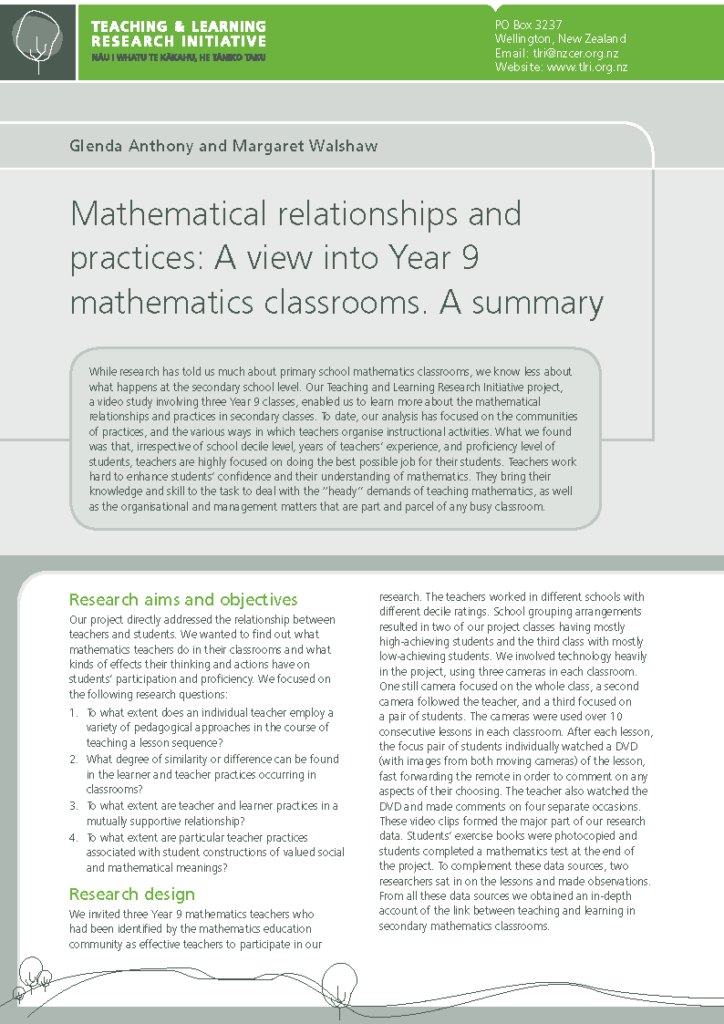
The pdf version of this document is formatted into a A4 pamphlet style While research has told us much about primary school mathematics classrooms, we know less about what happens at the secondary school level. Our Teaching and Learning Research Initiative project, a video study involving three Year 9 classes, enabled us to learn more […]
Observing assessment for learning (AfL) in action: Piloting an observation schedule to inform teacher assessment learning and research
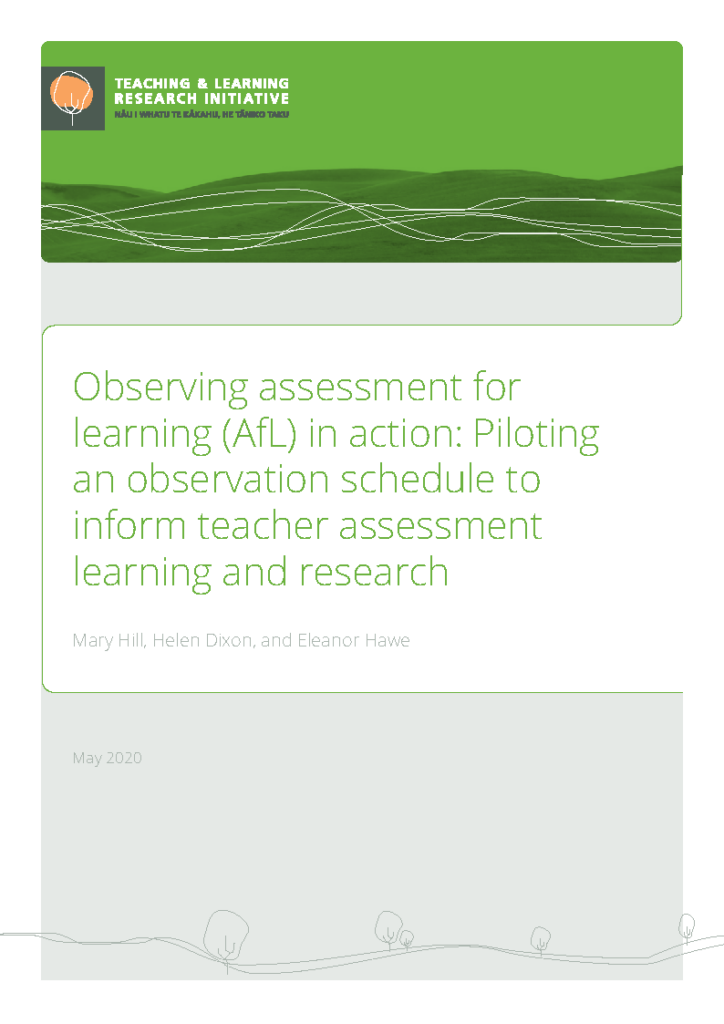
1. Introduction In New Zealand we lack valid and reliable evidence-based schedules with which to observe teachers’ assessment for learning (AfL) practices. To date, classroom assessment observation schedules have mainly been derived theoretically, used in developing countries with conditions different from New Zealand classrooms (Kanjee & Hopfenbeck, personal communications), or restricted to particular curriculum areas […]
Experiences and reflections of teachers on the use of mixed reality technologies to foster cross-curricular learning opportunities
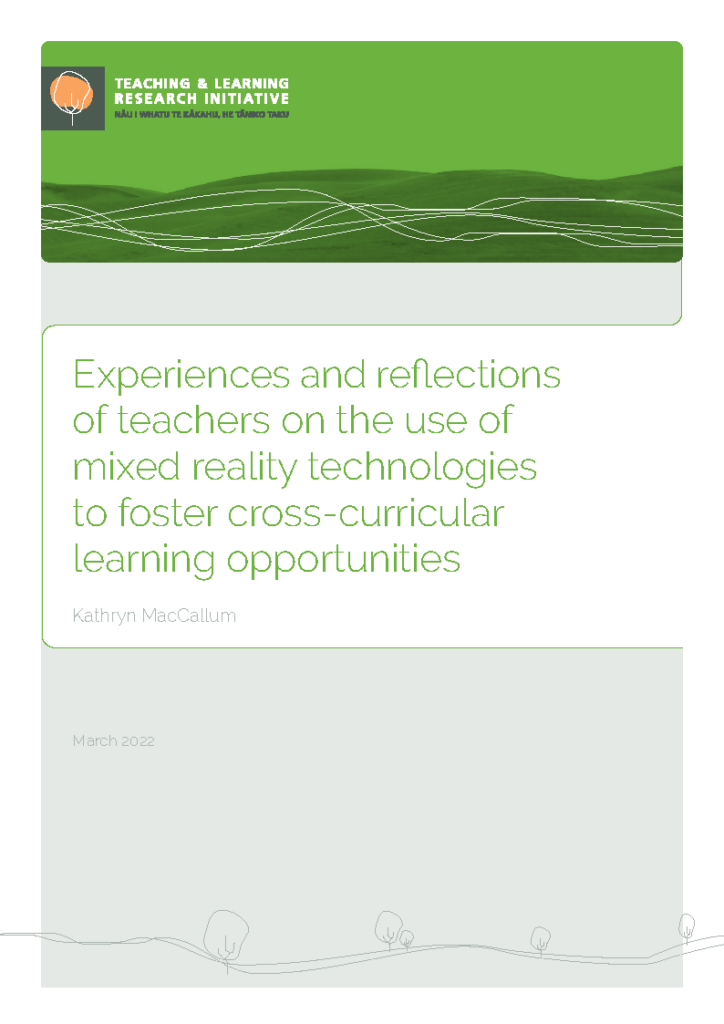
1. Introduction This study aimed to explore how the purposeful integration of new technology, specifically mixed reality (MR), can support learning across the curriculum through the development of digital artefacts. The study focused on exploring the experiences of teachers at two high schools who were supported by digital technologies teachers and the lead researcher to […]
Who, what, how, and why? Profiles, practices, pedagogies, and self-perception of adult literacy practitioners
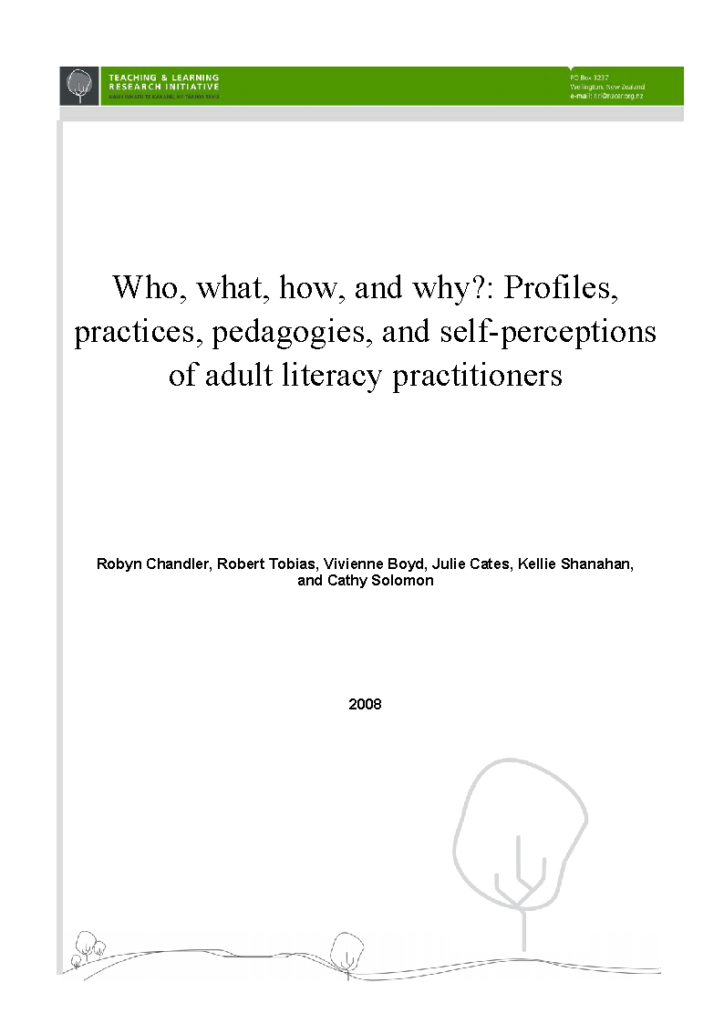
1. Introduction This study began in the Spring of 2003, when we—the Canterbury Adult Basic Education Research Network (CABERN), an informal cross-sector network of local adult literacy researchers and practitioners—sent out a questionnaire. The questionnaire addressed potential respondents by asking: “Are you a tutor engaged in any aspect of adult literacy?” and the accompanying information […]
